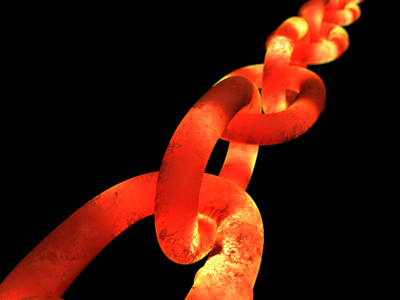
Ask the AI Tutor
Need help with Energy - Transfer by Heating? Ask our AI Tutor!
AI Tutor - Lucy
Connecting with Tutor...
Please wait while we establish connection

Metals are good conductors of heat because they have free electrons.
Energy - Transfer by Heating
Energy transfer by heating links conduction, convection, and radiation. This GCSE Physics quiz shows how particles and currents affect heat flow in real situations.
1 .
Which surface is the best reflector of heat?
Red surface
Black surface
Blue surface
Shiny white surface
Any surface that reflects light efficiently will also reflect infrared radiation effectively too. Remember, heat radiation is made from infrared radiation, a member of the electromagnetic spectrum just beyond the red end of the visible light spectrum
2 .
What kind of surfaces is heat radiation emitted from?
Shiny surfaces
Dark surfaces
All surfaces
Kitchen surfaces
Any object with a temperature above absolute zero will emit heat radiation (infrared radiation). Hotter objects emit more than cooler ones
3 .
Which of the following surfaces is the best absorber of heat?
Shiny surface
Black surface
White surface
Red surface
The best surface for absorbing heat is matt black, matt surfaces are better absorbers than shiny polished ones
4 .
What factor will cause an object to lose its heat energy the fastest?
Heating the object
A smaller temperature difference between the object and its surroundings
A larger temperature difference between the object and its surroundings
Encasing the object in a blanket
A larger temperature difference means that the heat will be lost at a much faster pace as there is more energy to radiate to the environment. We call the temperature difference a temperature gradient. The bigger the gradient, the faster the heat flows and vice-versa. You will have noticed exactly this effect when plotting cooling curves on graph paper
5 .
Which sentence best describes how conduction works?
Conduction involves vibrating particles passing the heat energy along
The heat is radiated into the surroundings
Warm particles rise and cold particles fall
Particles do not make contact with each other but are heated individually via an external source
This is the other reason why metals are good heat conductors - their particles are very closely packed so the vibrations are easily passed from one atom to the next
6 .
What does the transfer of energy by conduction, convection and evaporation involve?
Radio waves
Particles
Sound waves
UV waves
All these processes need particles to occur. In conduction, the particles vibrate next to each other and pass heat on through the vibrations. In convection, the hotter particles vibrate more vigorously so they move further apart. This means the density of the hotter gas or liquid is lower so it rises through the colder parts which are more dense
7 .
Which of the following is one reason why metals are good conductors of heat?
They are shiny
They have free electrons
They have a high resistance
They are rigid
Metals are good conductors because the free electrons within them are able to move throughout the material, helping to transfer the heat quickly
8 .
How does heat transfer through the vacuum of space?
By radiation
By conduction
By spacecraft
It doesn't
Space is a vacuum and as such there are no particles in it. This means that the only way for energy to travel through space is in the form of radiation as electromagnetic waves
9 .
What does the rate at which an object transfers energy by heating depend on?
Surface area and volume
The material from which the object is made
The nature of the surface with which the object is in contact
All of the above
Many factors affect the speed of transfer of thermal energy, not just the temperature gradient
10 .
What is evaporation?
The process during which fastest moving particles of a liquid escape from the liquid's surface
The vaporization of the entire mass of the liquid as heat energy is applied
It is the collective movement of molecules in liquids and gases
High energy particles knock lower energy particles out of the liquid and into the air
During evaporation, because the highest energy particles escape, the liquid left behind has a lower temperature. You may have seen this demonstrated using a hygrometer
**Unlimited Quizzes Await You! 🚀**
Hey there, quiz champ! 🌟 You've already tackled today's free questions.
Ready for more?
Ready for more?
🔓 Unlock UNLIMITED Quizzes and challenge yourself every day. But that's
not all...
not all...
🔥 As a Subscriber you can join our thrilling "Daily Streak" against other
quizzers. Try to win a coveted spot on our Hall of Fame Page.
quizzers. Try to win a coveted spot on our Hall of Fame Page.
Don't miss out! Join us now and keep the fun rolling. 🎉
**Unlimited Quizzes Await You! 🚀**
Hey there, quiz champ! 🌟 You've already tackled today's free questions. Ready for more?
🔓 Unlock UNLIMITED Quizzes and challenge yourself every day. But that's not all...
🔥 As a Subscriber you can join our thrilling "Daily Streak" against other quizzers. Try to win a coveted spot on our Hall of Fame Page.
Don't miss out! Join us now and keep the fun rolling. 🎉






